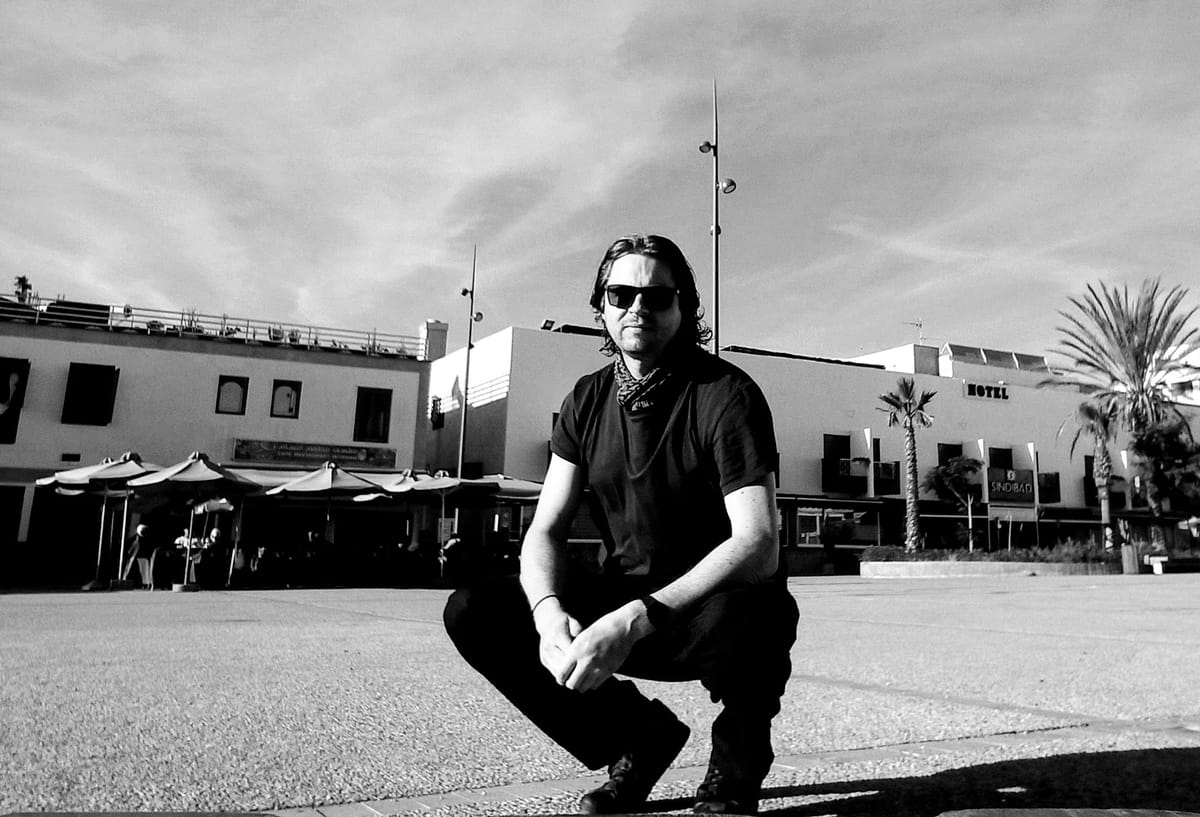Don't Look Back in Angers by Will Nett
Travel writing... more adventures from the intrepid Will Nett.

I’ve come to France for the day. Long story, but we all used to do it when we were kids; whizzing off to Paris by ferry and getting back three hours later laden down with Smurfs merchandise that you bought from a newsagents in Calais. Philistines.
I board the Eurostar and attempt to fully immerse myself in the language by binge-watching YouTube episodes of Extra French, an unintentionally hilarious educational Friends-style sitcom designed for GCSE language students. It follows the travailles of a group of Parisian friends, Sacha, Annie, and Nico, and American exchange student, Sam.
You can tell they’re not native Parisiennes; they’re always smiling and being helpful towards one another. As a learning tool the show is helpful; speech is deliberately slow and succinct, but I find it difficult to focus as my attention is drawn to endless continuity errors and technical issues. A boom mic occasionally swings into shot, and clothing changes midway through a scene. Usefully, each exchange is surmised afterwards using the framing device of an online chat between the characters. There’s not much of the ever-changing French slang that I hope to acquire, but I must walk before I can run. By the end of the series, I’m fully invested in Nico’s attempts to get Sasha, played by Vanessa Seydoux, into bed, and the revelation that Sam is descended from the British Royal Family, genetically linking him to other notable bastards* such as Henry FitzRoy the Earl of Gloucester, and the 1st Duke of Monmouth.
I’m taking the scenic route to Limoges. Through the train window, the Wild Atlantic coast, and the Bay of Biscay, are just about the last land masses you can see before heading west to Newfoundland 2,400 miles away in Canada. On the mainland the coastline weaves between Brest and Bordeaux, making occasional stops at La Rochelle, and then Saint-Nazaire, where it turns into the Loire and makes a beeline east for the centre of Nantes. I’m approaching Angers, a charming medieval city that no two people, including the Angevins, can agree on how to pronounce. Hard ‘g’? Soft ‘g’? ‘A’ sound or ‘O’ sound at the beginning. Silent ‘s’? Sure; go ahead. Nobody knows. I eventually settle on ‘onsh’ but in such a way as to sound like I’m lowering myself into a bath of scalding water. I’ve grown so confident in the pronunciation that I take every opportunity to use it on the journey.
‘Billet, sil vous plait, monsieur,’ says the new conductor at Angers-Saint-Laud, demanding my tickets.
‘Voila,’ I say, handing them over, ‘bienvenue a l’onsh.’ Welcome to Angers.
A ridiculous thing to say as he probably lives here. He smiles sympathetically, the way the French do when people make unwanted passes at their language. Crucially, he does not correct my pronunciation, which I take as a good sign from a people who consider correcting the mangling of their own argot to be a national sport.
‘Quelle fois nous depart Onsh?’ I continue, acknowledging my wrist, even though I’m not wearing a watch. I even make a little brrr sound before the sentence, the way the French sometimes do, to give his French-tuned ears plenty of notice.
‘A tout de suite,’ he replies. Right now.
I consider myself fluent, as the train slowly coasts past Chateau d’Onsh en route to Limoges, where I’m meeting an old friend.
On arrival I indulge in English tourist suicide and avail myself of steak hache, at a restaurant on Place Sadi-Carnot. The dangerous part though, is ordering in French. I generally abide by a food-is-fuel mentality unless I’m in France, the only place where I go along with making an entire event of mealtimes. The disapproving English response to this stems from jealousy. Consider how many times you’ve hurriedly eaten your lunch at your desk as your boss watches the clock; get back to work, serfs echoing through the ages of the English at leisure, a venture that terrifies the upper classes. Work over. You can have your tea at seven o’clock. The English are so servile to their supposed superiors that they’ve convinced themselves there’s no other way to live, as they unquestioningly continue to work the longest hours in Europe, for some of the lowest financial gain. They’re unable to tell you why this might be beneficial, and in any case haven’t the time to investigate it further as they’re too busy dodging managerial whip cracks. It is in dining that we can see why the French public have historically dictated to their ‘leaders’ rather than the other way round.
My first mouthful of wine, a Bordeaux Château Bonnet, hits like a blood transfusion. I can feel the plasma in my system reproducing as the sediment separates on my tongue. I hold the wine in my mouth for as long as I can bear – white is my preference, and usually not French – then allow it to fall away. It sluices over my tongue gutters and into the overflow of my gums, warming my brain in the stale polluted air as we sit au terrasse watching diners flood into the surrounding restaurants for the afternoon sessions. Table staff glide like ice-skaters. Maitre’ds click their fingers, the physical jargon of the French restaurateur. Ours looks like the sort of man to tell Mike Tyson to go fuck himself. He’s built like a Sweet William but with a head like a tool-thrasher’s anvil. If he stands still any longer on the thin strip of pavement outside of the restaurant, I expect someone will arrive to validate their parking ticket in him. He smokes formidably, the way the French do. God help anyone demanding urgent reasonable service from a French smoker, especially before lunch.
It’s shortly after, actually, and we’ve already run up a 100-euro bill. I can’t pay it. I’ve spent all my money on Smurfs merchandise.
*And that is how you legally call the Royal Family a pack of bastards.
Check out Will's books on Amazon.





